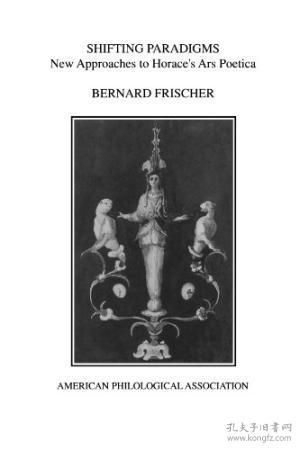Horace, a renowned figure in the annals of Roman literature, is often celebrated for his contributions to the world of poetry. His works, particularly those found in “Ars Poetica,” have left an indelible mark on the art of writing. In this article, we delve into the life and works of Horace, exploring the significance of his “Ars Poetica” and its impact on the literary world.
About Horace

Horace, whose full name was Quintus Horatius Flaccus, was a Roman poet who lived during the late Roman Republic and early Roman Empire. Born around 65 BC, he was a contemporary of the famous Roman statesman and poet, Virgil. Horace’s poetry is known for its wit, elegance, and philosophical depth, making him one of the most influential poets in Roman literature.
Horace’s early life was marked by a series of setbacks. He was born into a wealthy family, but his father’s death left him in debt. Despite these challenges, Horace managed to study law and eventually became a lawyer. However, his true passion lay in poetry, and he eventually abandoned his legal career to pursue his literary aspirations.
The Art of Poetry: Ars Poetica

One of Horace’s most famous works is “Ars Poetica,” a poem that serves as a guide to the art of poetry. Written in Latin, “Ars Poetica” is a collection of advice and criticism on the craft of writing. The poem is divided into three books, each focusing on different aspects of poetry.
In the first book, Horace discusses the importance of rhythm and meter in poetry. He emphasizes the need for a balance between the natural flow of language and the structured form of poetry. The second book focuses on the content of poetry, emphasizing the importance of moral and ethical themes. The third book delves into the art of composition, offering advice on how to structure a poem and how to use language effectively.
“Ars Poetica” has had a significant impact on the literary world. It has been used as a guide for poets and writers for centuries, offering valuable insights into the craft of writing. The poem’s emphasis on the importance of moral and ethical themes has also influenced the way poets approach their subject matter.
Horace’s Other Works

In addition to “Ars Poetica,” Horace wrote a variety of other works, including odes, satires, and epistles. His odes are particularly notable for their elegance and wit. Some of his most famous odes include “Ode to the Nightingale” and “Ode to the Muse.” His satires, on the other hand, are known for their sharp wit and criticism of contemporary society.
Horace’s epistles are a series of letters that he wrote to friends and acquaintances. These letters offer a glimpse into his personal life and provide valuable insights into the social and political climate of his time.
Horace’s Legacy
Horace’s contributions to the world of poetry have had a lasting impact. His works have influenced countless poets and writers over the centuries, and his “Ars Poetica” remains a valuable resource for those interested in the art of writing. Horace’s emphasis on the importance of moral and ethical themes in poetry has also influenced the way poets approach their subject matter.
Horace’s legacy is not limited to the literary world. His works have also had a significant impact on the broader culture. His wit, elegance, and philosophical depth have made him a beloved figure in the annals of Roman literature, and his influence continues to be felt today.
| Work | Genre | Notable Features |
|---|---|---|
| Ars Poetica | Guide to Poetry | Emphasis on rhythm, content, and composition |
| Odes | Poetry | Elegant and witty, often philosophical |
| Satires | Poetry | Sharp wit and criticism of contemporary society |
| Epistles | Letters | Personal insights into social and political climate |
Horace’s life and works continue to be celebrated for their depth
